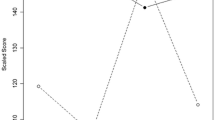Abstract
Instructional materials selection practices vary widely in the way they are administered and conducted, the criteria that are used, and the precision with which they are carried out. In this paper a two-phase instructional materials selection process is presented. The process is based on considerations from the design and formative evaluation of competency-based instruction. The purpose of the first phase is to select materials that have the best potential for affecting learning outcomes desired by a local or state educational agency. The purpose of the second phase is to verify decisions made in Phase I, and make recommendations to teachers about how the materials can be used most effectively. The paper also includes a comparison between the guidelines for materials selection published by the State of Florida and the considerations recommended in this paper.
Similar content being viewed by others
References
Baker, E. L., & Alkin, M. C. Formative evaluation of instructional development.AV Communication Review, 1973,21 (4), 389–418.
Banks, C. Schools of Fort Gay-Thompson. Lexington, Kentucky: University of Kentucky, 1973. (ERIC Document Reproduction Service No. ED 138 413).
Breiter, J., & Menne, J. A procedure for textbook evaluation illustrated by an analysis of fifth grade social studies texts. 1974. (ERIC Document Reproduction Service No. ED 132 130).
Dykstra, R. Selecting basal texts.Educational Product Report, 1969,2 (7), 14–17.
Eash, M. J. Developing an instrument for the assessment of instructional materials (form IV). New York: City University of New York, 1970. (ERIC Document Reproduction Service No. ED 041 947).
Florida State Department of Education.General criteria for the selection of instructional materials in all subjects. Tallahassee, Florida, 1977.
Florida State Department of Education.Criteria for instructional materials selection in English, language arts. Tallahassee, 1977.
Florida State Department of Education.Criteria for instructional materials selection, in mathematics. Tallahassee, Florida, 1977.
Florida State Department of Education.Criteria for instructional materials selection for elementary education. Tallahassee, Florida, 1977.
Florida State Statutes 233.07 through 233.48.State instructional materials councils. Tallahassee, Florida.
Jacobs, F., Maynard, J. G., McMahon, A. T., Miller, L. A., Priest, M. D., Rice, K. J., & Snyder, V. G. Quality control for instructional materials.Harvard Journal on Legislation, 1975,12, 511–562.
Jovanovich, W.Now Barabbas. New York: Harper and Row, 1964.
Kirst, M. W., & Walker, D. An analysis of curriculum policy making.Review of Educational Research, 1971,41, 492.
Komoski, P. K. An imbalance of product quantity and instructional quality: the imperative of empiricism.AV Communication Review, 1974,22, 357–386.
Komoski, P. K., & Eliott, D. Suggested guidelines for the learner verification of instructional materials. New York: EPIE Institute, 1973.
Morrisett, I., & Stevens, W. W. Steps in curriculum analysis. Boulder: Social Science Education Consortium, University of Colorado, 1967.
N. E. A. Checklist for selecting and evaluating U. S. History textbooks. West Haven, Conn.: N. E. A. Publications, 1973.
Rothkopf, E. Z. Some observations on predicting instructional effectiveness by simple inspection.The Journal of Programmed Instruction, 1963,2, 19–20.
Scriven, M. The methodology of evaluation. In B. Worthen & J. Sanders (Eds.),Educational Evaluation: Theory and Practice. Worthington, Ohio: Charles A. Jones, 1973, pp. 74–75.
SWRL. Considerations in selecting instructional products. Los Alamitos, Calif.: SWRL Educational Research and Development, 1975.
Author information
Authors and Affiliations
Rights and permissions
About this article
Cite this article
Carey, J.O., Carey, L.M. Using formative evaluation for the selection of instructional materials. Journal of Instructional Development 3, 12–18 (1980). https://doi.org/10.1007/BF02909013
Issue Date:
DOI: https://doi.org/10.1007/BF02909013




